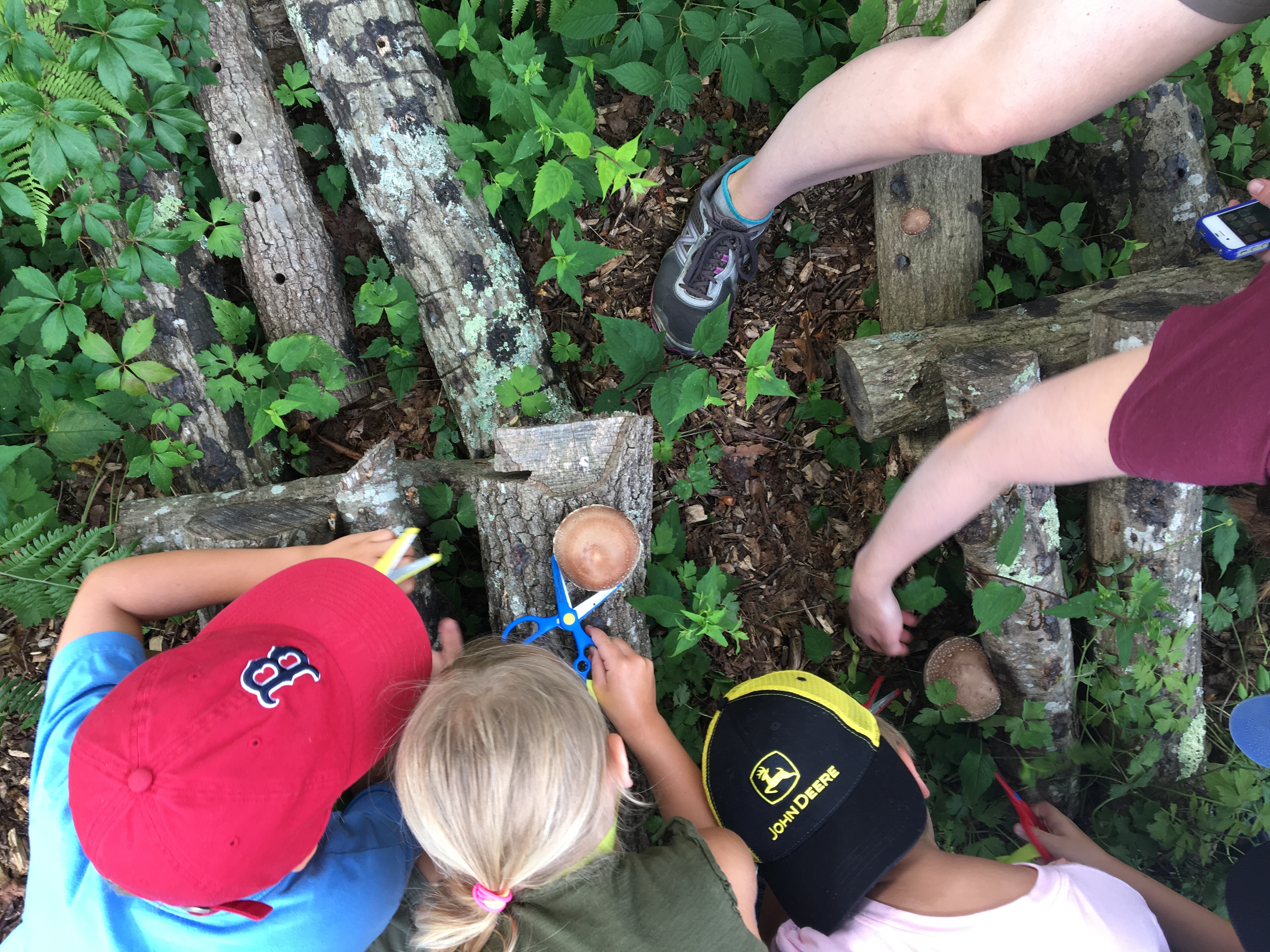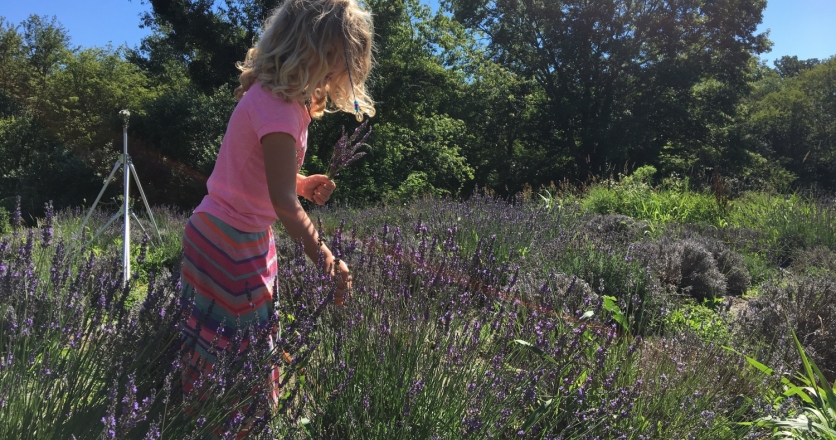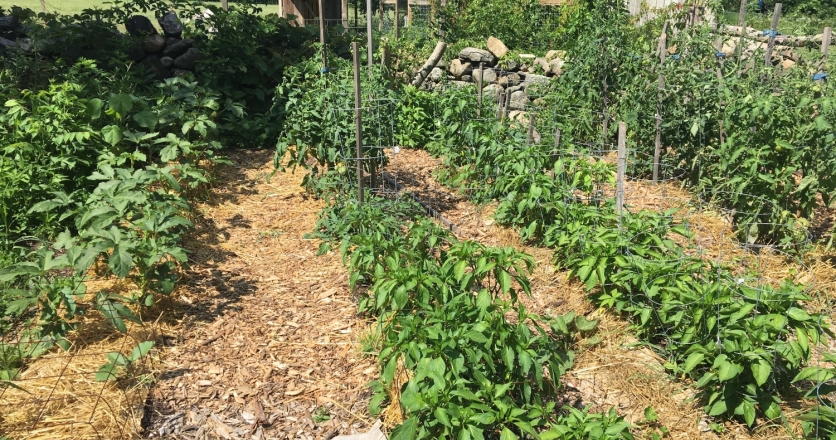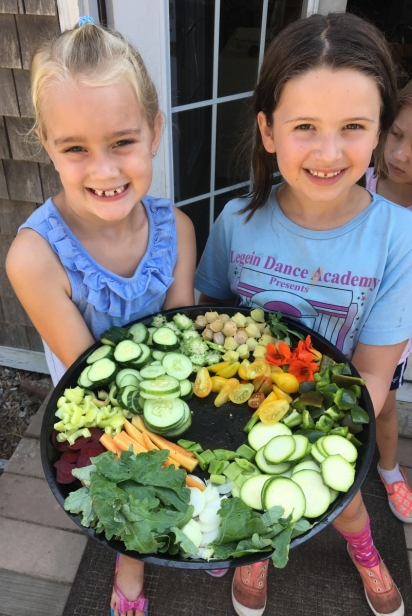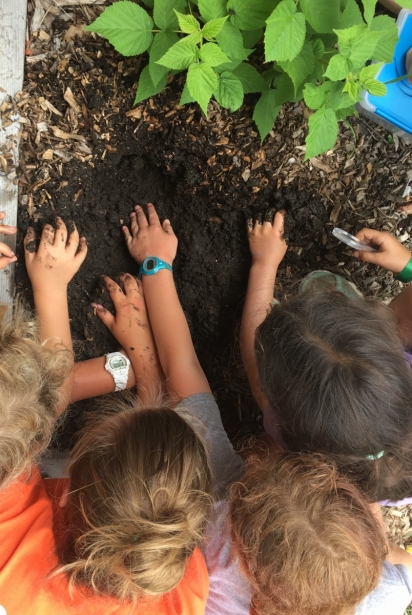A Week at the Compass School Farm Camp
In the summer of 2018, I spent 14 weeks as a counselor at the Compass School Farm Camp in Kingston, Rhode Island, taking kids through a variety of farm-related adventures to help them understand more about where their food comes from and how it is grown. The Compass School, founded in 2002, is a public charter school centered on project-based curriculum emphasizing social responsibility and environmental sustainability. During the summer months, the school hosts a farm program for four weeks, two of which are partnered with the South County YMCA. The campers’ ages range from rising kindergarteners to rising sixth graders.
In preparation for the arrival of the campers, I spent the first few weeks of my job helping with curriculum planning and planting, digging and weeding—doing the farming—so we (and some of the plants) would be ready for our young farmers. When the campers finally arrived in mid-July, they were eager to learn about food, animals and the great outdoors.
Farm camp centers around outdoor education and sustainable agriculture, so each day is filled with activities utilizing the campus’s resources: the Garden of Ideas; the Teacher Garden; the Biodiversity Garden; the Navigator Maze; and Farm Headquarters—an air-conditioned space to escape from the heat. The campers also love to play with the flock of chickens we have on campus.
Here’s a look into what campers do each week at Compass School Farm Camp:
Morning Harvest:
Each camp day begins with a morning harvest. The kids enter the Garden of Ideas and we hunt for anything that’s ready to be picked: garlic, peas, carrots, tomatoes and kale. Zucchini, cucumbers and husk cherries are the favorites because harvesting those veggies is more like a treasure hunt than anything else. Some of the kids are familiar with the process because they have gardens at home. Often it’s those campers who get even more excited because they can share their knowledge with other campers who have never harvested vegetables before. During lunchtime we’ll often cut up some of the vegetables from the morning harvest so the kids can sample the foods they have picked. Most of the kids are extremely open to trying things they’ve never eaten before, even okra or raw onion.
Hungry to Learn
Outdoor education is the primary objective at the Compass School Farm Camp. The kids learn about insects, plants and ecosystems, including how worms help plants grow. After learning about the anatomy of the worm and what worms do for our soil, we head out to the Garden of Ideas and get dirty. The kids love to dig in the soil and hunt for worms and inspect them with magnifying glasses.
On other days, the kids learn about watersheds, pollution, caterpillars and mushrooms. Kati Maginel, head of the Compass School Farm Program, says: “Through our summer camp … our students come away with an understanding of sustainable food systems—what we eat, where it comes from, how to grow it and how those efforts support our community. Our staff fosters an environment that makes this type of learning fun and provokes curiosity about these crucial topics as we explore together in the biggest school garden in Rhode Island!”
Farm to Table
On Thursdays the campers get to bake lavender and mint shortbread cookies. The campers hunt for mint, which grows all over campus like a weed. Then they go the Biodiversity Garden to harvest lavender, taking a quick break to play a round of maze tag. Bringing huge basketfuls of fresh herbs back to Farm Headquarters, the kids cut the lavender and mint into small pieces so it can be mixed into a shortbread cookie dough. This enables the campers to make a yummy treat and to experience eating from farm to table.
Time to party!
The kids love to showcase the produce they’ve learned about during the week, so on Friday afternoons they get to have a harvest party and parents are invited. The campers harvest as many different types of fruits and vegetables as they can find and arrange them on platters. The campers love to make their parents taste everything they’ve harvested—they also enjoy taking parents through the Garden of Ideas. Ending the week this way allows for the parents (and the campers) to observe how much the kids have learned about vegetables and farming.
Learning how to grow fresh food is important for kids to experience at a young age, and the Compass School Farm Camp gives this opportunity to kids who might not learn such skills at home. Using games and creative outdoor projects, campers leave camp at the end of the week feeling enthusiastic about nature and excited about agriculture.
For more information about the 2019 Compass School Farm Camp season, visit CompassSchool.org/Farm-Camp/.


